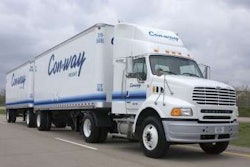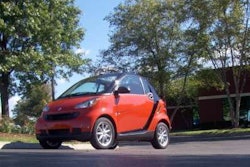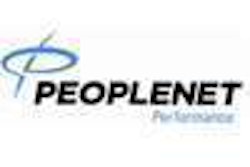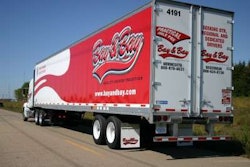Mack on Wednesday, March 18, announced that it was the first North American truck manufacturer to offer customers fully integrated adaptive cruise control as an option on its Class 8 highway models.
The Mack Road Stability Advantage System (RSA) by Bendix helps increase driver safety and decrease the potential for roadway accidents by integrating throttle, engine brakes and foundation brakes into the truck’s cruise control function. According to Jerry Warmkessel, Mack marketing product manager, the new system is an extension of the truck maker’s previously released rollover avoidance system, which was also a world-first for the company.
“Accidents can devastate a trucking company,” Warmkessel said. “The average cost for a trucking company involved in a fatal accident is $3.4 million. A nonfatal injury costs trucking companies an average of $217,000. This system takes vehicle safety to a whole new level. It can help drivers avoid crashes altogether, or at the very least help to mitigate damages and injuries — and costs — in instances where a crash occurs.”
Mack says its RSA system works in conjunction with adaptive cruise control. A radar sensor located in the truck’s front bumper identifies and tracks moving objects in front of the truck. Once the driver turns the cruise control on and sets a speed, ACC works to maintain a set time gap between the truck and the vehicle in front of it. The default vehicle interval is 2.8 seconds; however, a fleet easily can change this setting, and an optional feature allows drivers to decrease or increase the interval as well.
If the vehicle in front of the truck slows, the system picks up on the decreasing time interval between them and begins to reduce the throttle to compensate. If that is not sufficient to restore the set interval, the ACC then will apply about one-third of the foundation brake capacity — always allowing the driver the option of applying full brakes at his discretion. The system is proactive enough, however, to bring the truck to a complete stop on its own without driver input should the situation demand such an action. To maintain driver alertness, the system provides several distinct audible alerts, including warnings for decreased following distance, lane cut-ins and an impending impact alert — even with cruise control turned off.
Simple chemistry key to SCR success
Anyone expecting an explosion was sorely disappointed when Dave McKenna, director of powertrain sales and marketing, held up a lit candle and doused it with diesel exhaust fluid (DEF) at Mack’s press conference. The DEF snuffed the flame completely, proving, in McKenna’s words, that “DEF is not flammable.”
The dramatic gesture was part of McKenna’s — and Mack’s — way of combating what they call “misinformation” in the trucking industry today concerning the safety and viability of forthcoming 2010 diesel engines equipped with selective catalytic reduction (SCR) systems, which reduce particulate and NOx emissions to meet tighter U.S. Environmental Protection Agency regulations that go into effective in January.
McKenna said Mack is ready now to meet 2010 emissions levels and demonstrated that fact by showcasing a production-ready Mack Granite with SCR at the World of Concrete trade show in Las Vegas, Nev., in February. “SCR is simply the most viable and cost-effective way to meet EPA 2010,” McKenna said. “Other technologies such as diesel NOx reduction systems are unproven in engines with displacements larger than 6 liters, and diesel NOx absorbers have proven to be unviable. You can use massive EGR with EPA credits — but once those credits are gone, they are gone.”
SCR, McKenna says, “isn’t voodoo. It’s been around since 1957 in commercial and industrial applications. It’s a simple means of converting NOx into water and nitrogen.
“I want to be clear — DEF is not ammonia,” he said. “It is not flammable. It does not give off noxious gases at high temperatures, and it does not break down at temperatures above 85 degrees Fahrenheit. Furthermore, engines need air for good fuel economy. And SCR systems allow us to reduce the amount of exhaust gas recirculated in an engine, giving fuel economy increases up to 5 percent compared to our pre-2010 engines.”
McKenna said that based on a diesel fuel price of $2.42 a gallon, fleets can expect to save $1,655 a month on fuel by running Mack SCR diesel engines compared to pre-2010 engines. “And that figure includes the additional cost of purchasing DEF,” McKenna stressed.











